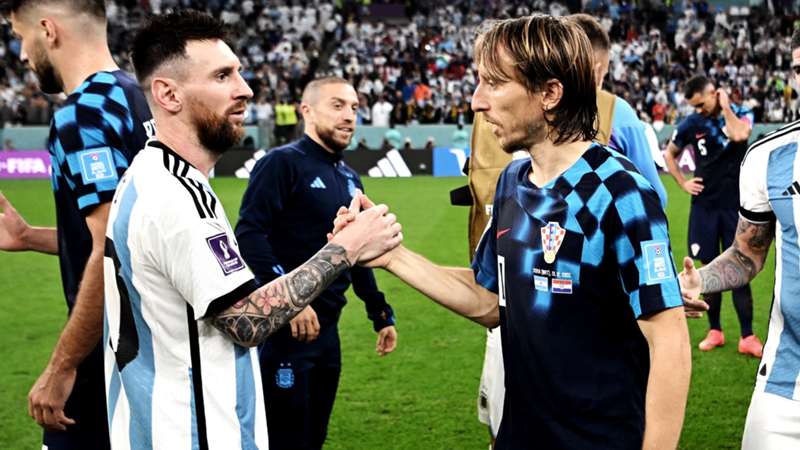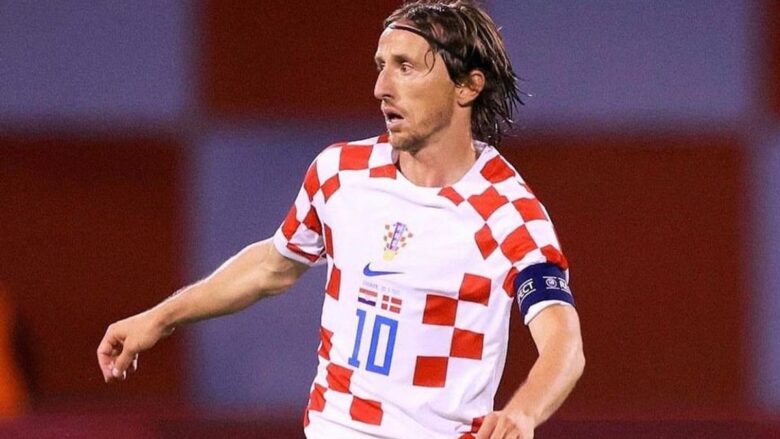Thirty-six years after Diego Maradona hoisted the World Cup at Mexico’s Azteca Stadium, Argentina, led by the “Son of God” Lionel Messi, won the World Cup in Qatar for the third time.
Messi’s first World Cup appearance came in the second half of the second group game against Serbia and Montenegro in Germany in 2006.

The youngster, only 18 years old at the time, assisted Hernan Crespo’s goal three minutes later. Two minutes before the end of the game, he scored his first World Cup goal to cap off a 6-0 goal rush. It was a truly impressive World Cup debut.
Since then, he has gone on to play in the 2010 World Cup in South Africa, the 2014 World Cup in Brazil, and the 2018 World Cup in Russia, becoming the only player to score goals in his teens, 20s, and 30s. The record doesn’t stop there.
He scored seven goals in this tournament. He should have been the top scorer, but the “Golden Boot” went to Kylian Mbappe (France), who scored eight goals.
However, he did increase his World Cup goal tally to 13, surpassing the “King” Pele (Brazil) and ranking fourth on the all-time list, along with Juste Fontaine (France).
Needless to say, he also broke Gabriel Batistuta’s record for the most goals (10) for the Argentine national team.
Furthermore, with one championship, one runner-up finish, and two top 8 finishes (the rest were in the round of 16) in five appearances, he has surpassed Lothar Matheus (Germany), who played in five World Cups between 1982 in Spain and 1998 in France, to become the all-time record holder with 26 appearances.
Messi’s Passion
The 1986 World Cup in Mexico was known as “Maradona’s tournament. Like Maradona, the Qatar World Cup will be remembered as “Messi’s tournament, by Messi, for Messi. It is no wonder that he won the “Golden Ball” (MVP).
Messi showed a rare side to his game in this tournament. First, in the quarterfinals against the Netherlands. Messi’s team led 2-0 at one point, but were tied at the break, and then came up just short in the penalty shootout, 4-3.
Argentina and the Netherlands have a history of being “bitter rivals” in the World Cup, and they are also “dogs and monkeys. In this match, Messi was unusually emotional and provocative, “shooting” at his opponents.
It was an unthinkable behavior from the normally quiet Messi. At the same time, the intensity of his passion was reminiscent of Maradona.
It is not hard to imagine that the captain’s fighting spirit ignited the team. The victory over the Netherlands should have further strengthened Argentina’s unity. I want to win the World Cup with Messi.
There is one other thing that has changed about Messi. It was the way he played in the final against France.
Until then, Argentina’s team concept had been to let Messi stretch out wide on the right flank and concentrate on attack. The 22-year-old Julian Alvarez and his teammates were in charge of defending up front.
After-effects of the COVID-19
The result of the team’s efforts was clearly shown in the semi-final against Croatia. Messi was attacked by the strong CB Josko Gbardiol, but he was able to pull off a perfect save at the end to assist Alvarez for the third goal.
Lionel Scaroni relieved the burden on the defense, and Messi responded with seven goals and three assists.
In the final, however, he joined the defense from the front when his teammates were getting tired and showed his fighting spirit in an aerial duel with defender Theo Hernandez. It was the kind of play he had never seen before, not only at Paris SG but also at Barcelona.
Despite being 35 years old, I was amazed that he played the full 120 minutes. And in the penalty shootout, he was the first kicker to calmly take the ball out of the opponent’s goalkeeper’s net, bringing the game back to Argentina.
The driving force behind Messi’s performance was his desire to win the World Cup, the only title he has been missing.
It goes without saying that Messi has natural talent. But he has also worked tirelessly. Last season, he sought a new home at Paris SG, but injuries and the aftereffects of Corona prevented him from playing as well as he would have liked.
778 appearances, 672 goals.
However, since his promotion to the Barcelona first team in 2004 at the age of 17, he has consistently played a leading role in Europe’s “top of the top” clubs and leagues for 17 seasons.
Without missing a single season, he has amassed 672 goals in 778 appearances for Barcelona, a truly remarkable record.
Did all these accomplishments make Messi a special “child of God,” or was he born a “child of God”? Only God knows.
Messi was also MVP at the 2014 World Cup in Brazil, where he finished runner-up. This is the first time in the history of the World Cup that he has won the award twice, once in Qatar and once in Brazil.
The MVP is decided by a vote of the press, but since the voting takes place before the final match, it does not reflect the game or the result. In other words, the MVP is decided before the game.
Still, there is no doubt that Messi or Mbappe were the frontrunners for the MVP and top scorer at the World Cup in Qatar. And both of them played more than adequately to deserve the nominations.
If I had to pick another MVP candidate, it would have to be Luka Modric, who, at 37, led Croatia to a third-place finish with a lion’s share of the spoils.
Same World Cup debut as Messi.
A midfielder who plays at the bottom of the midfield and uses long and short passes to set up the game. His outside-right pass is a “work of art,” and his mid-range shot is also a major weapon in his game.
Modric is a natural passer of the ball for the national team and Real Madrid, no matter where he is.
This is not only because his teammates trust him so much, but also because he has a natural sense of positioning, including deft off-the-ball movement. It is the reason why he is called “the wizard.
His World Cup debut, like Messi’s, came in Germany 2006, in the 33rd minute of the second group game against Japan (1-1). The team, however, was eliminated from the group phase, and it was a bittersweet debut for the 20-year-old Modric.
The following World Cup in South Africa in 2010, the team was eliminated in the European qualifying round, and the World Cup in Brazil in 2014 was also lost in the group phase, but at the ripe old age of 32, he shocked the world at the World Cup in Russia in 2018.
He literally led the team, being named Man of the Match in three of the seven games he played. In the knockout stages, he won three consecutive extra-time and penalty shootout matches to reach the final, leading Croatia to their first runner-up finish and earning the MVP award.
The 37-year-old’s defensive prowess
One of the most notable aspects of Modric’s game is his defensive ability: despite his small stature (172 cm, 66 kg), he prevents his team from getting pinched with his physical and legitimate tackles.
In the Qatar World Cup semifinal against Argentina, he was the kicker of an FK in front of the opponent’s goal, but was hit on the counter from an opponent’s clearance.
Modric was the one who headed the cross from the left back to the right back. In the third-place playoff against Morocco, Modric returned to cover CB Gbardior, who had also joined the attack, to stop the attack.
At 37 years old, it is not surprising that he has already passed his peak as a player. Despite this, he played until the 98th minute of the Round of 16 match against Japan, and in the semifinal against Brazil, he scored the winning goal in the penalty shootout after extra time.
Like Messi, he has been a consistent performer for Real Madrid for 10 seasons since joining the club in 2012. He has always been among the “top of the top” in Europe, and has been involved in high-level battles both offensively and defensively.
Three league championships may not seem like a lot, but that was because of the presence of Messi at rival Barcelona. However, they have won the CL (Champions League) five times, including three consecutive titles, and have also won the league double twice.
Both men have withdrawn from retirement.
Modric himself admits that he is normally a quiet player, but once on the pitch, he is a natural “I hate to lose,” and it is not uncommon for him to berate his teammates.
His competitive spirit never wanes, no matter how old he gets. This may be due to his childhood events, when he became a refugee at the age of six after the outbreak of the Croatian conflict (he remained a refugee until the age of 18) and his grandfather was killed by Serbian forces.
Soccer was the emotional support for such a young Modric boy.
For both Messi and Modric, the World Cup story was temporarily completed with a hard-fought match in Qatar. However, both players soon withdrew from the national team. Both will still play for the national team, and Modric has ambitions of reaching the top of the Nations League. Perhaps it is their deep “love” for soccer that motivates them both.


コメント